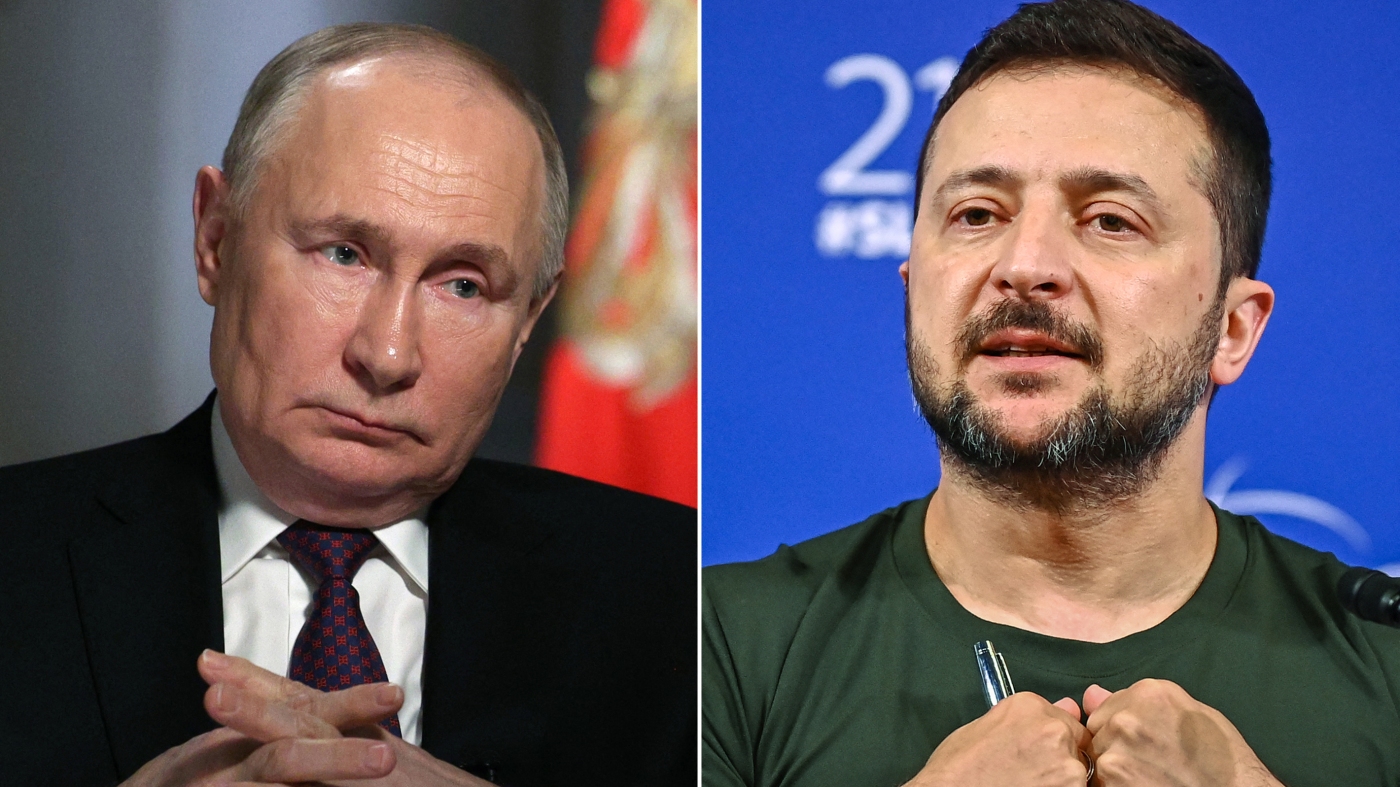The Geopolitical Chess Game: Unraveling the Russia-Ukraine Talks
The geopolitical stage is set for a high-stakes game of diplomacy as Russia and Ukraine inch closer to potential direct talks, with President Trump’s unexpected involvement adding a twist to the narrative. The diplomatic dance began in late April when Russian President Vladimir Putin declared a three-day ceasefire to commemorate World War II Victory Day. This move, however, was met with doubt from both Moscow and Kyiv, each accusing the other of truce violations. This ceasefire, though, sparked Ukraine, backed by European leaders, to consider a more proactive diplomatic strategy. Enter President Trump, offering to join prospective talks in Turkey, further complicating the scene.
The Diplomatic Maze: European and American Interventions
Navigating the diplomatic landscape is akin to traversing a complex maze, filled with intricate interests and alliances. European leaders from France, Germany, the United Kingdom, and Poland have been instrumental in mediating the conflict. Their efforts gained momentum when European leaders, during a visit to Kyiv, proposed a 30-day ceasefire before any direct talks. However, President Trump’s intervention has introduced a new variable. Trump’s offer to participate in the talks in Turkey has raised eyebrows among European allies and Ukrainian officials, who fear being marginalized. The U.S. administration’s approach has been perceived as potentially undermining European-led efforts, with Trump’s unilateral moves sparking concerns about coordination and strategy.
Trump’s Unconventional Diplomacy
President Trump’s role in the Russia-Ukraine conflict is marked by his distinctive diplomatic style. His offer to join the talks in Turkey and his advocacy for direct negotiations between Russia and Ukraine have elicited a mix of skepticism and concern. Trump’s suggestion of potentially participating in the talks himself adds an element of unpredictability to the tense situation. His approach, which includes threatening to withdraw U.S. involvement if negotiations stall, has left many pondering the long-term implications for U.S. foreign policy and its global diplomatic standing.
The Unknowns Ahead
The potential direct talks between Russia and Ukraine in Turkey are enveloped in uncertainty. Key unknowns include the willingness of both parties to engage in constructive dialogue, the role of external mediators, and the potential outcomes of such talks. Scheduled to take place in Istanbul, a city steeped in diplomatic history, the choice of venue adds a layer of symbolism. However, it also raises practical questions about the negotiations.
The Ukrainian Perspective
Ukrainian President Volodymyr Zelenskyy has responded cautiously to the proposal for direct talks, insisting on a ceasefire before any negotiations. This stance is supported by European leaders and reflects the deep-seated mistrust between the two nations. Zelenskyy’s concerns about being sidelined in the negotiations underscore the importance of European and U.S. involvement in any peace process.
The Russian Stance
Russian President Vladimir Putin has proposed holding direct talks with Ukraine on May 15 in Istanbul, aligning with his earlier ceasefire suggestion. Putin’s proposal followed major European powers’ demand for a 30-day ceasefire, adding to the diplomatic pressure. Russia’s willingness to engage in direct talks, albeit with conditions, suggests a potential shift in its stance. However, Russia’s rejection of a U.S.-backed ceasefire proposal indicates that the path to resolution is fraught with challenges.
The European Dilemma
European leaders are in a delicate position. They are committed to supporting Ukraine and promoting a peaceful resolution while also concerned about being sidelined by the U.S. administration’s unilateral moves. The European Union’s role in the talks is pivotal, given its economic and political influence in the region. The challenge for European leaders is to balance their support for Ukraine with the need for a cohesive and effective diplomatic strategy.
The American Dilemma
The U.S. administration, under President Trump, faces its own set of challenges. Trump’s approach to the conflict is a mix of unilateralism and a willingness to engage directly with Russia. His calls for direct talks and his offer to join the negotiations in Turkey reflect a desire for a more active role in the peace process. However, his threats to end U.S. involvement if negotiations do not advance raise concerns about the sustainability of U.S. engagement in the region. The U.S. administration must navigate these complexities while ensuring its actions align with broader foreign policy goals.
The Path Forward
The road to resolving the Russia-Ukraine conflict is fraught with challenges. The potential direct talks in Turkey offer a glimmer of hope, but the outcome remains uncertain. The involvement of external mediators, including the U.S. and European leaders, will be crucial in shaping the negotiations and ensuring a sustainable peace. The talks must address the root causes of the conflict, including territorial disputes and political differences, to pave the way for a lasting resolution.
Conclusion: A Pivotal Moment
The potential direct talks between Russia and Ukraine in Turkey mark a pivotal moment in the conflict. The involvement of President Trump and the complex dynamics of European and American diplomacy add layers of uncertainty and intrigue. As the world watches, the outcome of these talks will have far-reaching implications for the region and global geopolitics. The coming days will be crucial in determining the future of the conflict and the role of external mediators in shaping a peaceful resolution. The stakes are high, and the world awaits with bated breath.

